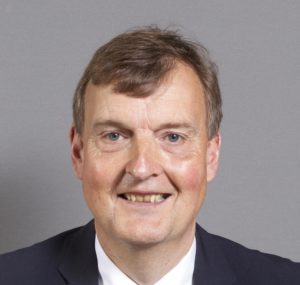
CCN Latest News, CCN News 2018 | 13 December 2018

The government has today outlined the provisional Local Government Finance Settlement for 2019/20 ahead of the settlement being ratified by Parliament in early 2019.
Key announcements from the settlement today include the confirmation of 15 new local authority business rate pilot areas, 12 of which are county areas. The Communities Secretary James Brokenshire also confirmed that councils will be able to levy a council tax rate of up to 3% next year again, alongside a social care precept for those authorities who took the 2% option over a three-year period. The government has also confirmed it will cancel ‘negative Revenue Support Grant’ for councils affected.
Ministers announced that a surplus levy of £180m will be made available to local authorities in 2019-20. Counties will receive £47.8m of this surplus, which is 26.6% of the total. It has been distributed according to the Relative Needs Formula.
Below, you can read a summary of the proposals and how they impact on counties in more detail.
Further consultations on the Fair Funding Review, and 75% Business Rate Retention have been published today as part of the announcements.
Below, the County Councils Network responds to the provisional settlement.
 Cllr Paul Carter, chairman of the County Councils Network, said:
Cllr Paul Carter, chairman of the County Councils Network, said:
“This year’s Local Government Finance Settlement comes at a hugely challenging time for councils. For the first time in many years, this settlement confirms that the government has recognised short-term pressures facing local government. We expect that the fair funding review consultation, also to be announced today, will continue toi set out a positive direction of travel for 2020 onwards.
“The additional £650m for social care provides us with a financial lifeline to get us over the hill and down the other side next year. Today’s settlement also confirms that councils will be able to levy a basic 3% council tax rise, with some councils still able to apply a 2% adult social care precept. We are pleased to see more counties benefit from business rates pilots, rightly as a result of ensuring greater equity with London by reducing their pilot to 75%. These announcements, alongside today’s surplus funding allocations and the cancellation of negative Revenue Support Grant, are welcome and will help councils maintain frontline services to residents and support local growth.
“Whilst today’s settlement contains vital short term support, it does not solve medium term financial pressures so tough decisions will still need to be taken and our members will have little choice but to raise council tax to meet demand-led pressures in services.
“Looking ahead, we should be under no illusions of the scale of the challenge facing county authorities, with the long-term future of councils dependent on whether we receive sustainable and fairer funding from 2020 onwards.
The next consultation paper on the Fair Funding Review was published in tandem with the settlement. It relates to the government’s preferred options for cost drivers for the ‘foundation formula’ and the highways formula.
Overall, CCN supports the direction of travel outlined. The network had called for a ‘flatter’ foundation formula, responsive to most population levels and demographics. This has been proposed by government. The consultation also confirms that the government’s preferred approach to council tax equalisation is using a ‘notional’ calculation. Again, CCN has supported this.
Whilst rurality is not outlined as one of the main cost drivers, it is proposed that rurality is included in the area cost adjustment, measured by travel times, potentially giving rurality a much more prominent weighting in the formula, and a reduced weighting for density. This change is welcome, and is a direct result of CCN advocacy.
We will be engaging with CCN member councils in the New Year ahead of an official response to the consultation and the 75% business rates retention consultation.
© 2024 County Councils Network | Credits | Site map | Cookies | Privacy Policy.